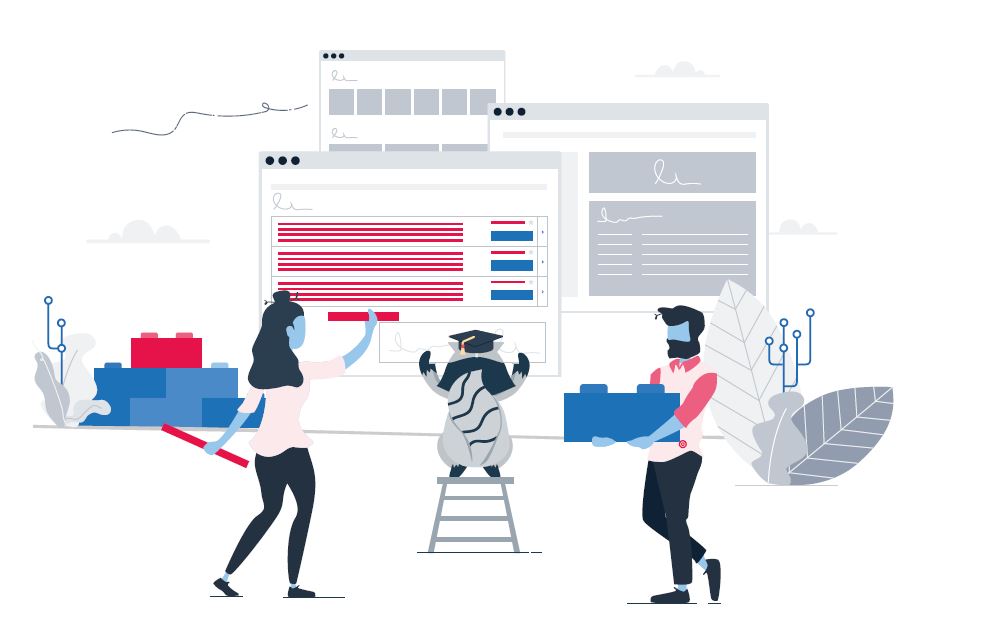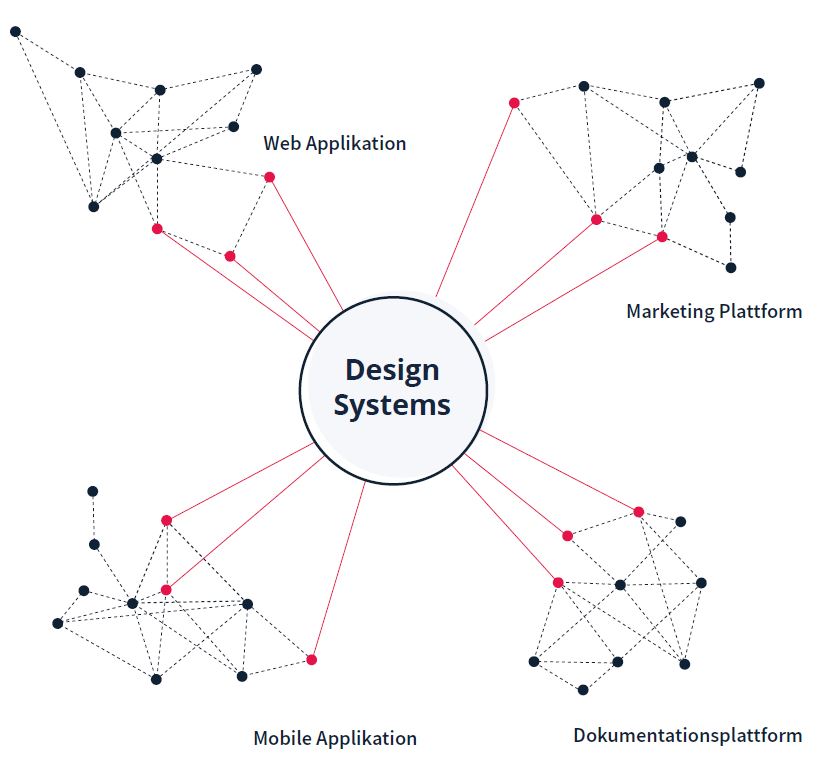A good user experience (UX) is a key factor for the success of a digital product, as nowadays functionality is already a standard requirement. A design system describes a comprehensive collection of values, semantics, syntax and context which forms the basis of a common design language. The system consists of reusable components which conform to clear standards, and it enables additional applications to be created. How do companies benefit from design systems, and how does an established design language improve corporate culture?
Numerous terms, models and procedures which make up a design system are analyzed in the theoretical part of this thesis. It also looks at how to ensure the consistency of complex and continually growing software products, and thus improve the collaboration between developers and designers, how to make designing more efficient and how to enable consistent design scalability. All of this ensures homogeneous and coherent user guidance, and strengthens the personality of the company.
The practical part of this thesis includes the ongoing development of a design system for the CAMPUSonline campus management system at the Graz University of Technology.









